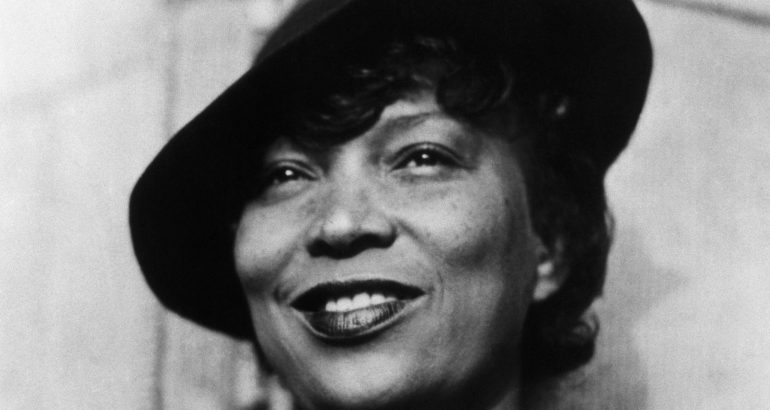
- Posted: 18 mayo, 2016
- By: Instituto Internacional
- Comments: No Comments
ENGLISH READING CIRCLE – SHORT STORY OF THE MONTH ANALYSIS: “SWEAT” BY ZORA NEALE HURSTON
This month we turn back to the past for Zora Neale Hurston’s “Sweat,” first published in 1926. Hurston is best known for her novel Their Eyes Were Watching God, which was published in 1937, and which explores many of the same themes put forth in “Sweat” in much the same style. Hurston’s use of eye dialect, which consists of spelling words as they are pronounced in the lived context being represented, is a significant element of her literary legacy. While it undoubtedly makes for more time-consuming reading, it is employed to preserve a sense of authenticity for the reader. As Hurston was trained and worked as an anthropologist and folklorist in the American Deep South as well as in the Caribbean, her desire to present speech as it was spoken by the communities whose stories she was seeking to tell means that the final literary product obliges us to work hard to enter its unique reality, deciphering its sounds as well as its meanings.
Although she was a central figure of the Harlem Renaissance of the 1920s, along with writers like Langston Hughes and Jean Toomer, Hurston received criticism from eminent African American writers like Richard Wright for her use of eye dialect, which Wright claimed presented a crude and caricatured portrayal of black communities that catered to racial stereotypes. She was also criticized for the apolitical nature of her work at a time when many African American writers like Wright blended a Marxist critique into the larger condemnation of American racism that defined much of their work. This is an interesting point to remember in our consideration of “Sweat,” since the story is not a repudiation of white society, nor a revelation of the inherent racism of US society. Instead its target is gender violence, within a narrative landscape that includes no white people at all.
Our main character is Delia Jones, a meek washerwoman who lives in terror of her no-account husband Sykes. Sykes is a scoundrel who makes no attempt to hide his ongoing adulterous affair with Bertha, another woman in town. “Sweat” charts Delia’s evolution from passive doormat and punching bag to a woman capable of watching her husband die without lifting a finger. At the center of the discord that defines the couple is their house, whose ownership they dispute. Delia claims, rightly it seems, that her sweat is what has paid for it; Sykes lays claim to it based purely upon his male privilege. He boasts to Bertha that the town is his, and so too is the home that Delia has fought and worked and sweated to make for the two of them. He is ultimately made to pay for the cruelty with which he has treated Delia as his strategy for forcing her to flee backfires. Delia’s home remains in her hands, and she, perhaps, is rewarded for her mildness and grace with a room of her own, finally.
It is indicative of the nature of the times that Hurston’s feminist themes like the ones present in “Sweat” would be viewed as apolitical by a large number of her contemporaries. It is true that this story does not explicitly engage with racism. However, it most certainly does deal with crippling injustice, and the struggle of the suppressed to gain the power necessary to award themselves agency.
Happy reading,
Andrew Bennett
Search
Categorías
Noticias recientes
-

Mini Camp: Easter Wonderland
3 febrero, 2026 -

MAKERS LAB STEAM CLUB: NEW ADVENTURES
3 febrero, 2026 -

Desde las aulas. Investigación y creación del profesorado en el Instituto Internacional
12 enero, 2026
